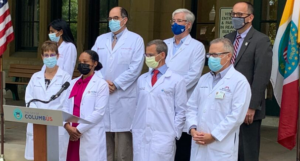Politicians and Public Health Policies in the USA
Public health policies stand at the intersection of governance and the well-being of the nation, with politicians playing a pivotal role in their formation and implementation.

The Legislative Landscape: Crafting Policies for the Public Good
From infectious diseases, which demand swift and strategic responses to prevent outbreaks and safeguard public health, to chronic conditions, where long-term planning and interventions are necessary, the scope of these policies is indeed vast.
Crisis Response: Politicians in the Face of Health Emergencies
Public health policies come to the forefront during crises. Politicians are instrumental in orchestrating responses, ensuring resources, and implementing measures to protect citizens.
Healthcare Access: Bridging Gaps Through Policy Initiatives
Politicians strive to improve healthcare access through policy initiatives. From expanding Medicaid to advocating for affordable insurance, these efforts aim to make health services more inclusive.
Preventive Measures: Legislating for a Healthier Future
Public health policies prioritize prevention. Politicians champion initiatives such as vaccination campaigns, smoking cessation programs, and educational efforts to reduce the prevalence of health risks.
Environmental Health: Legislating for a Sustainable Future
Addressing environmental factors impacting health is a key policy area. Politicians advocate for regulations to mitigate pollution, promote clean energy, and ensure safe drinking water.
Health Equity: Tackling Disparities Through Policy Reform
Disparities in health outcomes are a focal point for politicians. Policies aimed at addressing social determinants, improving healthcare in underserved communities, and promoting equity take centre stage.
Technology and Healthcare: Legislating for Innovation
Advancements in technology transform healthcare, and politicians navigate the legislative landscape to ensure responsible integration. This includes policies on telehealth, electronic health records, and health data privacy.
Mental Health Advocacy: Policies for Holistic Well-being
Recognizing the importance of mental health, politicians advocate for policies that destigmatize mental illnesses, improve access to mental health services, and integrate mental health into overall healthcare frameworks.
Global Health Diplomacy: Politicians on the International Stage
Public health policies extend beyond borders, and politicians engage in global health diplomacy. This involves collaborative efforts, resource allocation, and policy alignment to address global health challenges.
Challenges in Policy Implementation: The Politician’s Balancing Act
While crafting policies is crucial, navigating the complexities of implementation presents challenges. Politicians must balance competing interests, budget constraints, and public sentiment.
Public-Private Partnerships: Collaboration for Effective Policies
Successful public health policies often involve collaboration with private entities. Politicians work to create partnerships that leverage resources and expertise for the benefit of public health.
Legislative Oversight: Monitoring and Adjusting Health Policies
The role of politicians extends beyond policy creation to ongoing oversight. Regular assessments, feedback mechanisms, and adjustments are essential for the effectiveness of public health policies.
Community Engagement: Ensuring Policies Reflect Citizen Needs
Community engagement stands as a cornerstone in the development and implementation of health policies, with politicians actively involved in a dynamic dialogue with constituents. This engagement goes beyond a mere exchange of information; it’s a robust process of understanding, responding to, and incorporating the diverse health needs of the population.
Conclusion
In the dynamic landscape of public health, politicians serve as architects of change, shaping policies that impact the well-being of the nation. Their proactive efforts, advocacy, and strategic policymaking contribute to building a healthier and more resilient society.

